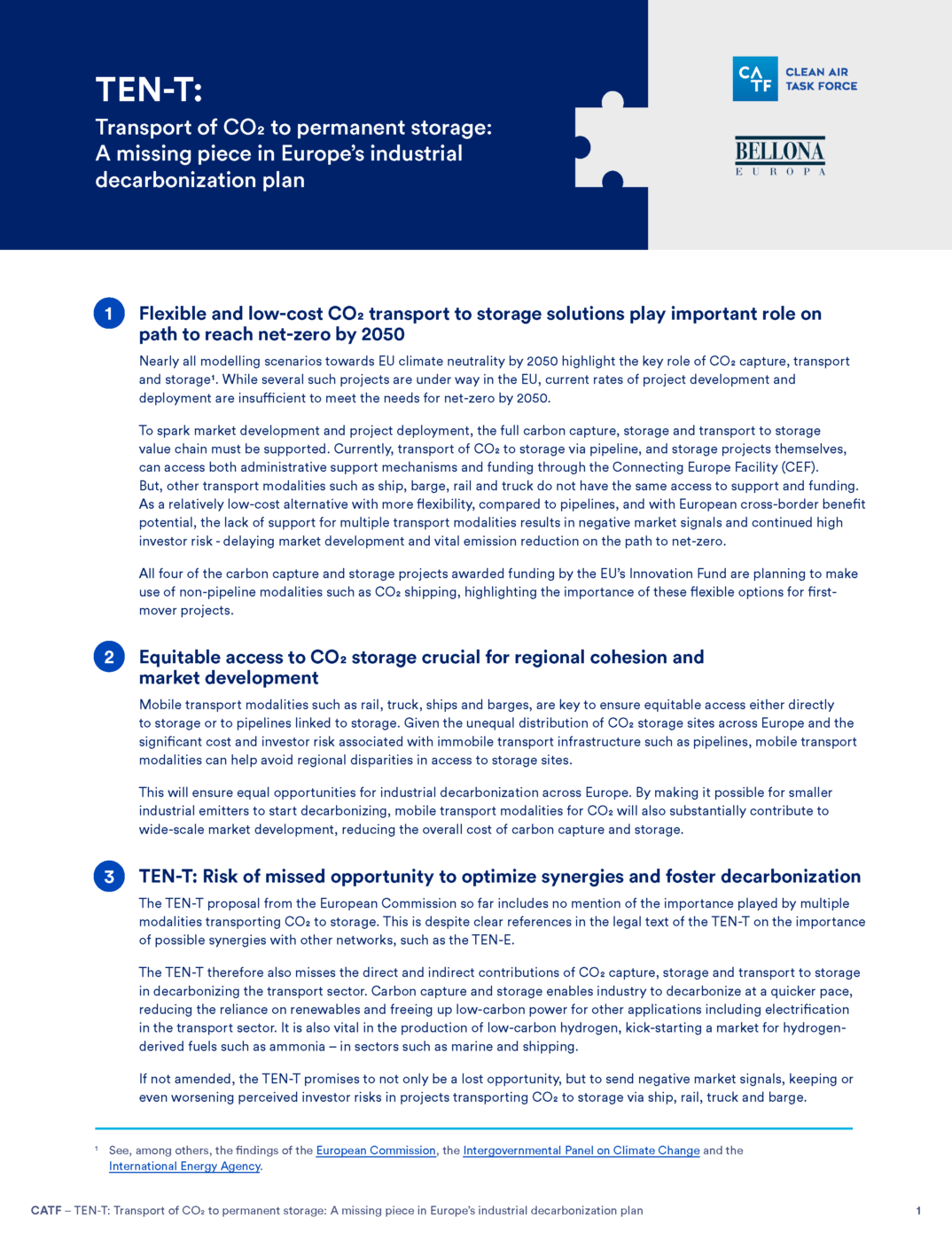TEN-T: Transport of CO2 to permanent storage – a missing piece in Europe’s industrial decarbonization plan

Nearly all modeling scenarios towards EU climate neutrality by 2050 highlight the key role of CO2 capture, transport, and storage. While several such projects are under way in the EU, current rates of project development and deployment are insufficient to meet the needs for net-zero by 2050.
To spark market development and project deployment, the full carbon capture, storage, and transport to storage value chain must be supported. Currently, transport of CO2 to storage via pipeline, and storage projects themselves, can access both administrative support mechanisms and funding through the Connecting Europe Facility (CEF). But, other transport modalities such as ship, barge, rail, and truck do not have the same access to support and funding. As a relatively low-cost alternative with more flexibility, compared to pipelines, and with European cross-border benefit potential, the lack of support for multiple transport modalities results in negative market signals and continued high investor risk – delaying market development and vital emission reduction on the path to net-zero.
The Trans-European Transport Network (TEN-T) proposal from the European Commission so far includes no mention of the importance played by multiple modalities transporting CO2 to storage. This is despite clear references in the legal text of the TEN-T on the importance of possible synergies with other networks, such as the Trans-European Network for Energy (TEN-E).
The European Commission’s proposal for the TEN-T Regulation must therefore be amended to:
- Reduce investor risk in the private market by granting Project of Common Interest (PCI) status to multiple modalities transporting CO2 to storage.
- Enable rapid market development by administrative, permit granting and public consultations support mechanisms granted to PCI projects.
- Contribute to actual project deployment by funding support offered by CEF to PCIs.


